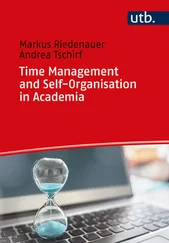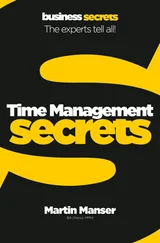Thomas Limoncelli - Time Management for System Administrators
Здесь есть возможность читать онлайн «Thomas Limoncelli - Time Management for System Administrators» весь текст электронной книги совершенно бесплатно (целиком полную версию без сокращений). В некоторых случаях можно слушать аудио, скачать через торрент в формате fb2 и присутствует краткое содержание. Жанр: Старинная литература, на английском языке. Описание произведения, (предисловие) а так же отзывы посетителей доступны на портале библиотеки ЛибКат.
- Название:Time Management for System Administrators
- Автор:
- Жанр:
- Год:неизвестен
- ISBN:нет данных
- Рейтинг книги:4 / 5. Голосов: 1
-
Избранное:Добавить в избранное
- Отзывы:
-
Ваша оценка:
- 80
- 1
- 2
- 3
- 4
- 5
Time Management for System Administrators: краткое содержание, описание и аннотация
Предлагаем к чтению аннотацию, описание, краткое содержание или предисловие (зависит от того, что написал сам автор книги «Time Management for System Administrators»). Если вы не нашли необходимую информацию о книге — напишите в комментариях, мы постараемся отыскать её.
Time Management for System Administrators — читать онлайн бесплатно полную книгу (весь текст) целиком
Ниже представлен текст книги, разбитый по страницам. Система сохранения места последней прочитанной страницы, позволяет с удобством читать онлайн бесплатно книгу «Time Management for System Administrators», без необходимости каждый раз заново искать на чём Вы остановились. Поставьте закладку, и сможете в любой момент перейти на страницу, на которой закончили чтение.
Интервал:
Закладка:
But now I'm writing this book. I must have survived. So will you.
Every time things look grim and difficult, just remember that change comes in small steps. Keep trying. Stick with the program. Squeeze those negative thoughts from your brain by saying to yourself, "Trust the process" and give it another try.
When you least expect it, someone will say to you, "You're so organized! I wish I knew how you do it all so well!" and you'll realize that you haven't had to refer back to this book in ages. Success!
Summary
Time management is particularly difficult for system administrators because we have unique problems (a mix of projects and interruptions), our technical mentors don't have good time management skills, and our nontechnical managers don't understand our work. One asset at our disposal is that we are highly technical people and can easily use technical solutions to manage our time.
External interruptions (customers) and self-imposed interruptions (Instant Messages, new email notifications, and so on) kill productivity. Returning from an interruption takes time and introduces errors into your work.
Poker Chips
Everyone has advice about how to avoid procrastination. Search Google for "avoiding procrastination" and you'll get back over 19,000 links. You'll find work sheets from university counseling centers that help you get in touch with the sources of your procrastination. You'll find books and articles. You'll find top 10 lists of reasons why people procrastinate and how to counteract them. You'll find professional life coaches who will (in person or via phone) coach you through this and other life difficulties (for a fee). Feel free to try what appeals to you. In fact, do that right now.
I think the most important thing to remember is that procrastination is natural. It comes from fear and self-doubt. We all fear change. We all doubt our ability to succeed.
Instead of focusing on your self-doubt, focus on its opposite—your self-esteem . Self-esteem is like a stack of poker chips. If you are playing poker and you only have a few chips, you can only make small bets. This means you can't win a lot of money. In fact, you'll have to fold more often rather than risk losing your last chip. When you have a lot of chips, you can make big bets that pay off big. You can take risks. You can try things that you wouldn't have tried when you had fewer chips. You can win big!
When we have little self-esteem, we are more likely to give up or not even try. Without trying, we are never in the position to succeed. So, we don't. When we have high self-esteem, we're more willing to take risks and put ourselves in a position to have the opportunity to win.
Understand why self-esteem is like a big pile of poker chips?
Here's the magic: the poker chips of self-esteem only exist in your head, so you can create more!
In poker, the chips are real, physical objects. You can't just twinkle your nose and make poker chips appear. On the other hand, in life, you can do any kind of ritual to make more self-esteem chips appear magically. My "Sooner is better than later" mantra gives me the chips I need to overcome procrastination. A hug from someone you love magically makes more chips appear. The quiet support of a friend helping you to sit down and read this book makes even more chips appear. Therapy is all about increasing your chips. If shouting out loud, "Yes, I can!" makes more self-esteem chips, then shout all you want.
Pretty neat, eh?
Experts agree: buying this book automagically gives you a huge boost to the number of poker chips you have at your disposal. Turn the page and get to work.
Arrange a mutual interruption shield with coworkers so that someone else deflects interruptions when you need to get projects done.
Use one database for all time management information. Keeping everything in one place helps you stay organized.
Conserve brain power for what's important. Use your brain for the work on hand and an organizer to record to do items, dates, and notes.
Develop routines and stick with them. Rather than constantly reinventing the wheel or repeating decision-making processes, work things into routines.
Develop habits and mantras. They help remind you to reuse previous good decisions.
Maintain focus during "project time." You will work better when you focus on one thing at a time.
Manage your social life with the same tools you use for your work life. Your non-work life is important, and you should manage it with the same tools you use for your work life so that you don't miss out on the fun things either.
Chapter 2. Focus Versus Interruptions
How many times have you told your boss that something will take a day of uninterrupted time, which means it will be done a month from now? SAs say this because their project work is constantly interrupted with requests from customers and management alike.
But when a system administrator says, "Users are always bothering me!" what he really means is, "I wish I could maintain focus on my tasks."
When we are focused and can work uninterrupted, we can get anything done. Focus is concentrated effort. When we are focused, we get our work done in less time, and our newly found free time can be used for more work or social activities. It's like eliminating unused peripherals from your laptop—the battery lasts longer and you can do more work or spend more time playing a game.
Interruptions are the natural enemy of focus. They steal time from us both directly and indirectly. The direct way they steal time is obvious: an interruption that stalls us for t minutes delays task completion by t minutes. That's easy. However, the indirect way that they steal time is more insidious. When you return from an interruption, you have to spend p minutes to figure out where you left off. If you were interrupted during the third step of a multipart process, do you return to step three or step four? Figuring out where you left off is extra work that steals time from the project. I confess that in my career as an SA the biggest technical mistakes I've made can be traced to an interruption that led me to skip a step or forget to verify the previous step I had been working on. I returned to step four instead of three—oops. If the time spent recovering from those mistakes is s , then the total delay as the result of an interruption is t+p+s , which can be longer than the task itself!
Unfortunately, as an SA, interruptions are a fact of life. We must deal with our customers' needs—it's a job requirement. But balancing those needs with our project goals can be a hassle and a strain on personal relations with our coworkers. You might say that this chapter teaches you how to keep yourself focused and deal with interruptions without being a jerk.

Figure 2-1.
The Focused Brain
Focus is about dedicating as much of your brain as possible to a particular task. The brain has many parts: the front part is dealing with whatever you are thinking about right now (the CPU and L1/L2 cache, if you will), the back part is where you store stuff (the RAM), and the far back part is where you store long-term knowledge (your hard drive). Focus deals with what I'll unscientifically call the front of your brain.
When you focus, you are trying to dedicate 100 percent of the front of your brain to your current task. To best understand this, let's look at an unfocused brain. Pretend you're trying to concentrate on a task, for example, writing a new Perl program to automate a procedure. However your mind is also cluttered with thoughts about the meeting you have in an hour, the three other tasks you have to do today, the milk you must buy on the way home, and you are still worrying about something your boss said to you this morning. All those things are taking up space in the front part of your brain, stealing capacity away from that Perl program you are writing! How good do you think that Perl program is going to be with all that other stuff filling up the front of your brain?
Читать дальшеИнтервал:
Закладка:
Похожие книги на «Time Management for System Administrators»
Представляем Вашему вниманию похожие книги на «Time Management for System Administrators» списком для выбора. Мы отобрали схожую по названию и смыслу литературу в надежде предоставить читателям больше вариантов отыскать новые, интересные, ещё непрочитанные произведения.
Обсуждение, отзывы о книге «Time Management for System Administrators» и просто собственные мнения читателей. Оставьте ваши комментарии, напишите, что Вы думаете о произведении, его смысле или главных героях. Укажите что конкретно понравилось, а что нет, и почему Вы так считаете.












